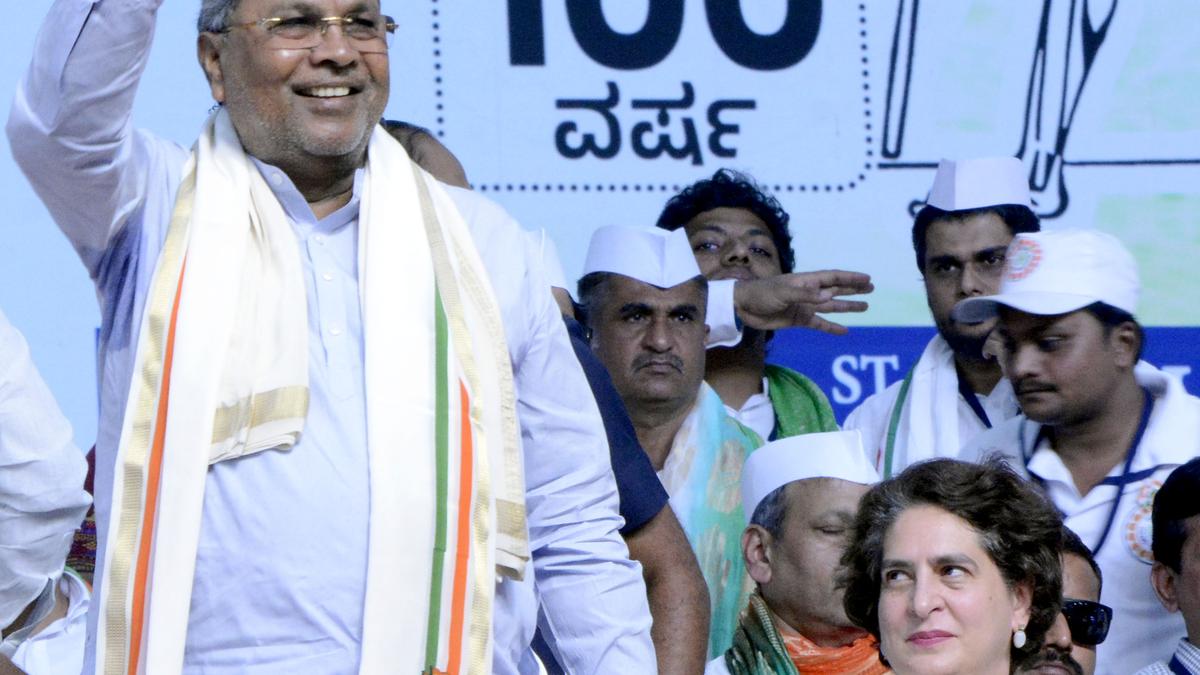Did Karnataka Chief Minister Siddaramaiah and his wife skirt the law? The Lokayukta police investigation into the MUDA alternative site allotment case is heating up, with the report submitted just days before a crucial court hearing. Get ready for a rollercoaster ride through the twists and turns of this high-profile land deal. This intriguing case involves allegations of irregularities, land conversions, and powerful players, and the stakes couldn't be higher. Buckle up!
The MUDA Land Deal: A Controversial Affair
The case centers around a piece of land, originally agricultural, that underwent a conversion and was later transferred to the Chief Minister's wife, B.M. Parvathi. This land acquisition has been dogged by allegations of irregularities. The timeline itself presents a complex narrative. Initially agricultural land, it went through a series of sales and transfers that raise serious questions. A meticulous timeline would look at these points: land transfer in 2004; a change in land classification sometime after; subsequent transfer of ownership; and the pivotal 2010 transfer to the Chief Minister's wife. All of these actions taken place over years.
The Initial Land Transfer
In 2004, the initial land ownership belonged to an individual named Devaraju. Afterward, the land ownership was changed to Mr. B.M. Mallikarjuna Swamy, through a sale that remains an aspect of the ongoing investigation. Details about the nature and circumstances of this sale and whether appropriate laws and procedures were followed remains under a cloud of scrutiny.
The Non-Agricultural Land Conversion
The land's transformation from agricultural to non-agricultural status represents another critical juncture. Converting land in Karnataka often triggers rigorous evaluation and permits, intended to maintain checks and balances and transparent land-use conversions. The legal compliance concerning this crucial step is pivotal to the current probe.
The Transfer to Parvathi
In 2010, B.M. Parvathi, the Chief Minister's wife, acquired the land, raising further scrutiny. How this transfer transpired remains a crucial piece of the investigation. Understanding the transaction's exact details, and ensuring compliance with relevant laws concerning land sales and the roles played by different parties, are vital. It goes to the heart of whether due process was duly followed.
The Request for Compensation and the Controversial Allotment
Fast forward to 2014. Multiple requests for compensation concerning this acquired land, made by B.M. Parvathi to the Mysuru Urban Development Authority (MUDA), eventually led to a decision in 2021, when the then-MUDA Commissioner D.B. Natesh approved alternative sites for her on a 50:50 ratio. This aspect of the land transaction remains in the heart of the controversy and is being looked at extensively.
RTI Activist's Complaint and the Subsequent Investigation
An RTI activist's concern provided a crucial impetus for this investigation. This serves to illustrate how citizen engagement through proactive vigilance can trigger inquiries, bringing seemingly untraceable anomalies to public light.
The Catalyst: RTI Activism
The catalyst for this extensive investigation was the complaint lodged by RTI activist Snehamayi Krishna, triggering official scrutiny that ultimately led to this important investigation into MUDA's decisions. The significance of the citizen activism highlights the crucial role RTI activists have in scrutinizing transparency issues and potentially rooting out unlawful behaviour.
The Special Court's Directives
Following the activist's complaint, the Special Court in Bengaluru issued a direction to conduct a thorough investigation. In this case, it points toward the authority’s willingness to examine issues carefully, no matter the position of any involved individuals.
The Lokayukta Police Report and its Implications
The Lokayukta Police Report represents a key element in the ongoing investigation. The report's submission, initially scheduled for a date changed due to a holiday, indicates adherence to judicial process; it is now eagerly awaited by all concerned parties and observers of this sensitive investigation.
The Tight-Lipped Officials
The deliberate lack of information about the report's contents emphasizes that the report's findings must stand on their own merits, preventing undue influence or prejudiced commentary before release. The court's deliberations will now determine the course forward for this important case.
Potential Consequences of the Report
The ramifications stemming from the report are far-reaching. Its contents will shape future decisions in this case. Its outcome could influence policies governing land acquisition and alternative site allotment across the state.
The Aftermath and Implications
The case's conclusion could have a major impact on land acquisition regulations and transparency within the MUDA, prompting review and potential reforms to existing procedures. Further investigations and decisions in the court could also have an impact on policies dealing with transparency issues.
The Return of the Land
Further steps indicate that all alternative sites allotted to the CM's wife have been returned to MUDA, although its effects are yet to be determined. The fact that Parvathi returned the sites could potentially influence future decisions and legal interpretations.
Key Lessons Learned
Transparency in land dealings is a critical point, along with clarity around the land change processes and regulations in MUDA. More active participation of citizens and activism through platforms like the RTI remains a valuable weapon in maintaining transparency and integrity in the bureaucratic and governmental structures of Karnataka.
Take Away Points:
- The Lokayukta police report on the MUDA alternative site allotment case has been submitted, potentially exposing a questionable deal involving Karnataka CM Siddaramaiah's wife.
- The case brings attention to land acquisition practices in Karnataka, especially around land conversions and alternative site allocation processes.
- The role of RTI activists in highlighting potential irregularities and prompting investigation is undeniable. The transparency that was brought into the case resulted in an intense look into its complexities, which in turn created opportunities for discussion and possibly improvements to procedures going forward.
- The ongoing court proceedings and potential reforms that follow may influence land acquisition procedures and policies across the state.









